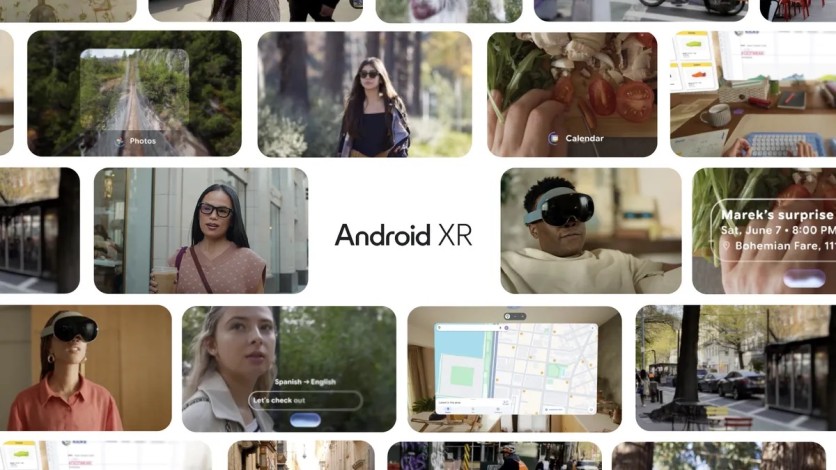
Google offered a deeper look at its new Android XR system, now with Gemini AI baked right in, at Google I/O on Tuesday.
These new glasses take on Meta and Rayban's collaboration, providing a set of eyewear with a camera, microphone, and speakers. Google says they work with your phone and give you access to your apps without having to take it out of your pocket.
Now you can pair these glasses with Gemini, said Google in a statement, which lets it see and hear what you do, helping it understand context and remember things you find important as you go about your day.
The demo included messaging friends, making appointments, getting turn-by-turn directions, taking photos, and more. The company wants to enable live language translation between two people, calling it "subtitles for the real world."
Google is working with Gentle Monster and Warby Parker on the glasses end, with plans to expand to companies like Kering Eyewear in the future. Samsung is another early partner, working with Google to expand XR experiences from headsets to glasses.
The company plans on testing this new gear over the coming months with "trusted testers," with more details promised in the coming months.
Responses to the announcement are fairly positive, with some early adopters like Glenn Gabe excited about how far the tech has come since the early Google Glass project.
Google glass-style with one holographic display. I was a Glass Explorer back in the day and the glasses have come a long way :) -> Google's Android XR Gemini-powered prototype glasses hands-on: they are light and comfortable to wear, and the single display in the right lens works… pic.twitter.com/272RYTZszt
— Glenn Gabe (@glenngabe) May 21, 2025
Of course, Meta glasses have its own AI built in; this is Google stepping up to compete directly. The biggest difference, as noted by ZDNet's Sabrina Ortiz, is the inclusion of an in-lens display. Google's new glasses will be able to show you things like captions and photos you take right in the device itself, something Meta's eyewear does not (yet).
ⓒ 2026 TECHTIMES.com All rights reserved. Do not reproduce without permission.




